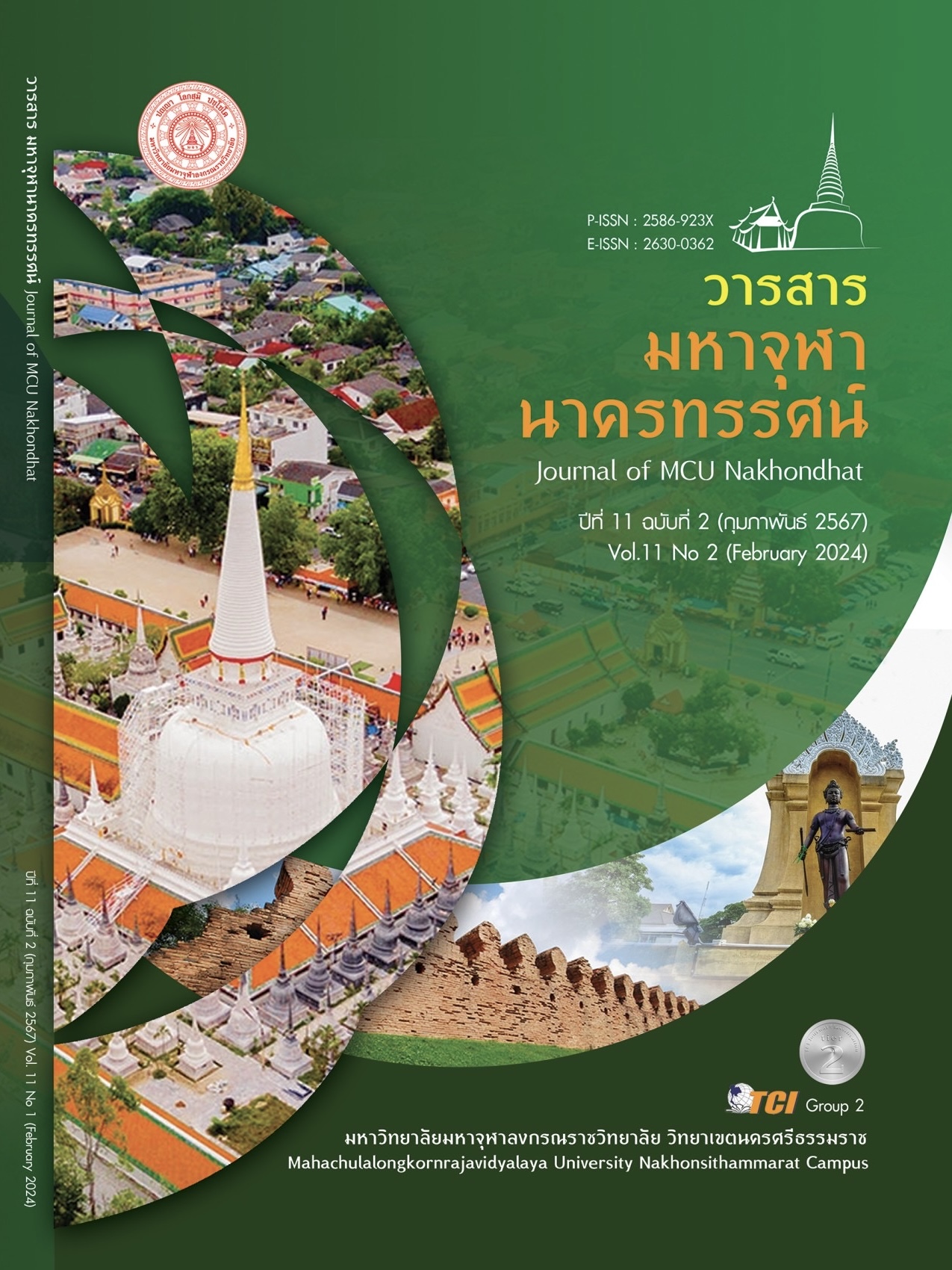PROBLEM - SOLVING AND DEVELOPING HUMAN RIGHTS CASES ARE GUIDELINES FOR PROTECTING AND PROMOTING HUMAN RIGHTS: A CASE STUDY OF GATHERING THE EVIDENCE
Main Article Content
Abstract
This research aims to study and analyze foreign laws as guidelines for solving the problem of gathering evidence or obtaining evidence from victims during investigation stage of human trafficking cases. The study employed the qualitative research method with the documentary research approach by studying and collecting relevant information from local and foreign books, research papers, textbooks and journals on issues related to evidence collection or obtaining evidence from victims during investigation stage of Thailand’s human trafficking cases. Information gathered from the data collection were analyzed to seek answers to research problems as a guideline in developing a model of gaining international acceptance of Thailand’s human trafficking cases leading to effective prevention and suppression of human trafficking in the future. The study found the following results. 1) The United Kingdom’s human trafficking cases had guidelines for coordination between prosecutors and police. The police must coordinate with the prosecutor to collect evidence and ensure sufficient evidence presented to the court. The role of the prosecutor was to offer advice to the police in the investigation stage from the beginning of the investigation. It caused an appropriate and balance examination as a guideline for developing the human trafficking investigation process and collaboration between the prosecutor and the police effectively. 2) The Federal Republic of Germany determined that the prosecutor monitored the investigation. Therefore, the evidence presented in the witnesses investigation stage of the court was examined from the beginning. This is a great advantage that Thailand should apply.
Article Details

This work is licensed under a Creative Commons Attribution-NonCommercial-NoDerivatives 4.0 International License.
References
กรรภิรมย์ โกมลารชุน และคณะ. (2563). การพัฒนากฎหมายและมาตรการ ในการคุ้มครองพยานในคดีค้ามนุษย์. วารสารนิติศาสตร์ มหาวิทยาลัยธรรมศาสตร์, 49(3), 522-563.
ไกรสร มีแสง. (2563). การปรับปรุงการสอบสวนคดีค้ามนุษย์ให้สอดคล้องกับพระราชบัญญัติวิธีพิจารณาคดีค้ามนุษย์ พ.ศ. 2559. ใน วิทยานิพนธ์หลักสูตรนิติศาสตรมหาบัณฑิต สาขานิติศาสตร์. สถาบันบัณฑิตพัฒน.
ณรงค์ ใจหาญ และคณะ. (2562). โครงการพัฒนาระบบการสอบสวนในคดีทุจริตและประพฤติมิชอบ และคดีค้ามนุษย์ ให้เป็นไปในทิศทางเดียวกับระบบไต่สวนตามพระราชบัญญัติวิธีพิจารณาคดีทุจริตและประพฤติมิชอบ พ.ศ. 2559 และพระราชบัญญัติวิธีพิจารณาคดีค้ามนุษย์ พ.ศ. 2559. ใน รายงานการวิจัย. มหาวิทยาลัย ธรรมศาสตร์.
ประกาศคณะกรรมการบริหารศาลยุติธรรมการจัดตั้งแผนกคดีทุจริตและประพฤติมิชอบของเจ้าหน้าที่รัฐในศาลอาญา. (2558). ราชกิจจานุเบกษา เล่ม 132 ตอนที่ 51 ก หน้า 25 (12 มิถุนายน 2558).
พระราชบัญญัติวิธีพิจารณาคดีค้ามนุษย์. (2559). ราชกิจจานุเบกษา เล่ม 133 ตอนที่ 46 ก (24 พฤษภาคม 2559).
ภัทรพร วิจิตรทัศนา และกิตตินันท์ ทวีศุข. (2564). วิเคราะห์พฤติกรรมศาสตร์และอาชญาวิทยากรณีการกระทำความผิดเกี่ยวกับบการค้ามนุษย์. เรียกใช้เมื่อ 13 กุมภาพันธ์ 2567 จาก https://www.dsi.go.th/Upload /fa5c24a00027f1cdeee1a7a9d9fe630f.pdf
มานะ เผาะช่วย. (2556). ระบบการดำเนินคดีอาญาในชั้นเจ้าพนักงาน : ศึกษาเปรียบเทียบระบบของประเทศอังกฤษ ฝรั่งเศส และประเทศไทย. ใน วิทยานิพนธ์ปริญญาดุษฎีบัณฑิต สาขานิติศาสตร์. มหาวิทยาลัยธรรมศาสตร์.
สถานทูตสหรัฐฯและสถานกงสุลในประเทศไทย. (2566). รายงานการค้ามนุษย์ประจำปี พ.ศ. 2566. เรียกใช้เมื่อ 13 กุมภาพันธ์ 2567 จาก https://th.usembassy.gov/th/our-relationship-th/official-reports th/2023-trafficking-persons-report-thailand-th/
สันติ ผิวทองคำ. (2565). การพัฒนาระบบสอบสวนคดีอาญาในบทบาทพนักงานสอบสวน. ใน ปรัชญาดุษฎีบัณฑิต สาขาการบริหารกระบวนการยุติธรรม. มหาวิทยาลัยธรรมศาสตร์.
สุรศักดิ์ ลิขสิทธิ์วัฒนกุล. (2563). ประมวลกฎหมายวิธีพิจารณาความอาญา ฉบับอ้างอิง. (พิมพ์ครั้งที่21). กรุงเทพมหานคร: สำนักพิมพ์วิญญูชนจำกัด.
สุริยา ปานแป้น และอนุวัฒน์ บุญนันท์. (2562). หลักกฎหมายว่าด้วยองค์กรอัยการและพนักงานอัยการ.(พิมพ์ครั้งที่ 6). กรุงเทพมหานคร: สำนักพิมพ์วิญญูชนจำกัด.
อรรถพล ใหญ่สว่าง. (2561). อธิบายวิชา สัมมนากฎหมายวิธีพิจารณาความอาญา. (พิมพ์ครั้งที่ 5). กรุงเทพมหานคร: สำนักอบรมศึกษากฎหมายแห่งเนติบัณฑิตยสภา.


